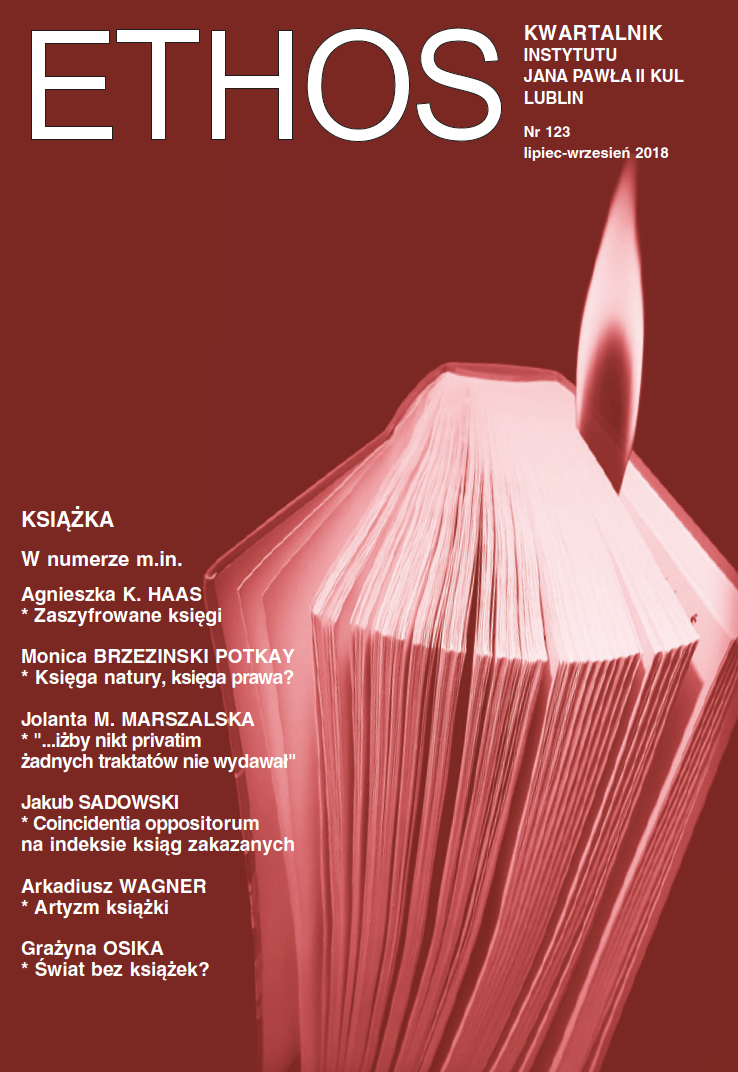BIBLIA. KSIĘGA ŻYCIA, PRAWA I PRZYMIERZA
The Bible: The Book of Life, the Book of Law, and the Book of Covenant
Author(s): Dariusz DziadoszSubject(s): Christian Theology and Religion
Published by: Katolicki Uniwersytet Lubelski Jana Pawła II - Instytut Jana Pawła II, Wydział Filozofii
Keywords: Hebrew Bible; Christian Bible; Books of the Bible; ancient Near Eastern literature; the Book of Law; the Book of Covenant; the Book of Life
Summary/Abstract: The author discusses the Hebrew Bible as a book, taking into consideration three pivotal research planes. Firstly, the Bible is scrutinized as a literary work in the context of the invention and development of writing in the ancient Middle East. Then the authority of the Bible, as well as its place in the culture of ancient Israel, is analyzed. Finally, in the concluding part of the paper, the author focuses on the Hebrew Bible as a most representative manifestation of monotheism. The capability of expressing language by letters or other marks, paired with the concept of books as permanent records of the intellectual, social and religious culture of mankind, has been among the most evident manifestations of the development of civilization. Historians believe that it was the ancient civilizations of the Fertile Crescent, i.e., Mesopotamia, Egypt, and Syro-Palestine, that became the birthplace of writing and the ‘homeland’ of books. It was in that region that the first, initially simple, and in time more developed, alphabet systems originated, followed by the ascent of writing and books. Stone or clay cuneiform tablets, papyrus scrolls, parchment scrolls with texts written in Classical, or Square, Hebrew, and the first written codes preceded books as we know them today. While the contents of ancient books were varied, they tended to oscillate around economic and trade issues within and among the communities in question, the administrative and diplomatic problems state structures (mainly monarchies) of those times experienced, and questions regarding religion and cult in a very broad sense. An analysis of the rich form and the diversified contents of ancient literary production from the perspective of today prompts the conclusion that the Hebrew Bible, which has exerted a significant influence on all the monotheistic religions, is among the most extensive and most valuable relics of social and religious writings dating back to the second and the first centuries before Christ. Yet, due to its literary richness and its religious and cultural originality, as well as the theological and legal novelties it introduced, the Hebrew Bible not only belongs among the most precious literary relics, but provides universal and stable reference in the process of shaping the cultural and religious identity of a human being.
Journal: Ethos. Kwartalnik Instytutu Jana Pawła II KUL
- Issue Year: 31/2018
- Issue No: 3
- Page Range: 21-44
- Page Count: 24
- Language: Polish
- Content File-PDF

